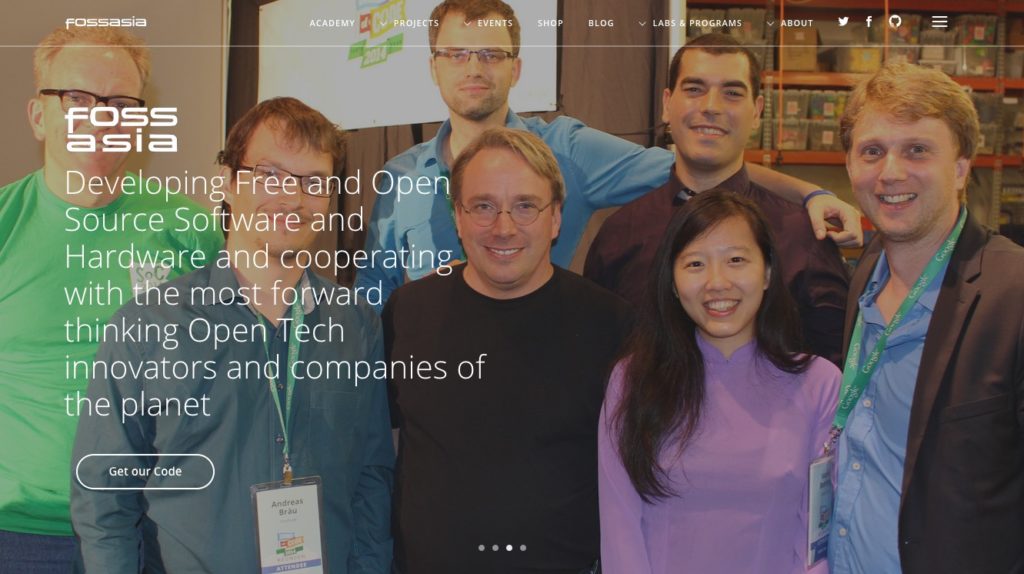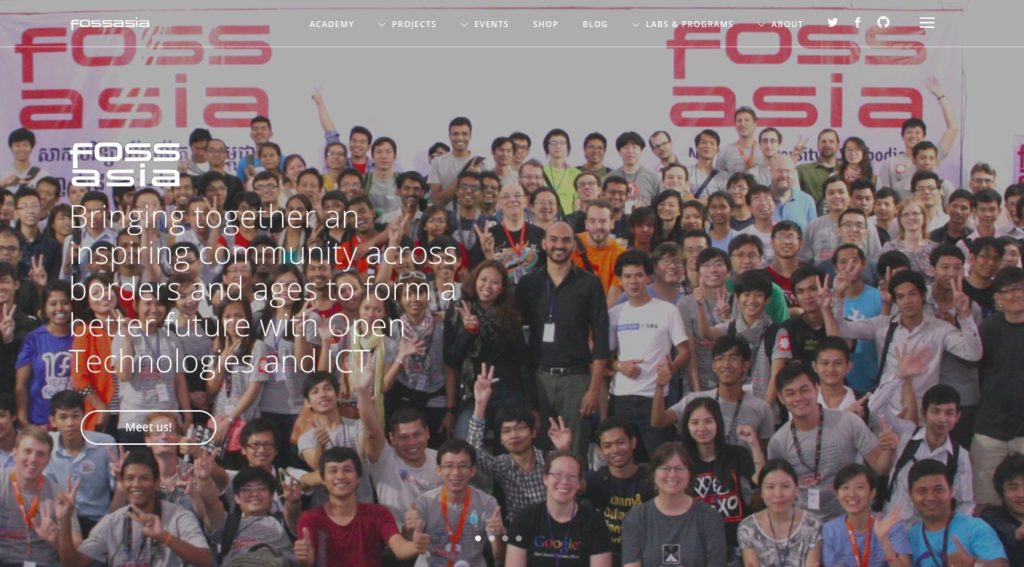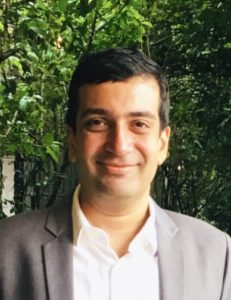
24 Sep, 2019
First OpenTech Summit in Bangkok can help Travel & Tourism regain control of its destiny
Bangkok – Travel & tourism IT executives seeking to break the stranglehold of the technology mega-corporations now dominating everything from booking engines to data-mining may find some opportunities at an OpenTech Summit to be held for the first time in the Thai capital on Oct 1-2.
Funded by Thailand’s National Innovation Agency and supported by UNESCO, the event will bring together young techies from all around ASEAN and the world for a “disruptive” summit that democratizes technologies and puts small and independent travel & tourism operators on equal and collaborative footing as Booking.com, TripAdvisor, Airbnb, etc.

The entire focus will be how open-source software can give travel & tourism, one of the biggest service-sector beneficiaries of technology, a far cheaper and yet equally efficient alternative, with fewer conditionalities, more flexibility and better security, than the proprietary-source software flogged by the giants.
According to the website www.opensource.com, “The term “open source” refers to something people can modify and share because its design is publicly accessible. … Open source projects, products, or initiatives embrace and celebrate principles of open exchange, collaborative participation, rapid prototyping, transparency, meritocracy, and community-oriented development.”
The main conference organizer is FOSSASIA, a community of Asia-based developers, designers, event organizers and contributors who “want to see progress and improvements of people’s lives in Asia and everywhere.” Founded in 2009 by Ms Hong Phuc Dang, a Vietnamese and Mario Behling, a German, FOSSASIA is dedicated to help its community members “learn and share ideas, create and make digital software tools and hardware, that benefit people around the world.”
Both the founders have travel & tourism experience. They designed and developed the no-frills, family-run eco-Hotel Xoai in Can Tho, Vietnam.

Ms Hong Phuc Dang and Mario Behling are on the right
Previously held in Singapore, Vietnam, Cambodia, India, China and Germany, OpenTech Summits are designed to showcase the latest open source technologies and solutions for education and business. The event includes practical training and workshops on AI, machine learning, hardware/IOT, big data, cloud solutions and much more.
It also helps local companies get access to leading experts and connect students and engineers with leading technology companies for future career opportunities.

Among the high-level speakers confirmed for the Bangkok summit are: Misako Ito, Senior Advisor UNESCO, Dr. Putchong Uthayopas, Vice President for Information (CIO), Kasetsart University, Klaikong Vaidhyakarn, a Thai Member of Parliament and Tanat Tonguthaisri, an Innovation Consultant at the National Science and Technology Development Agency.
Several sessions are of direct importance to travel & tourism.
One will be a talk on “Driving South East Asia Forward with OpenStreetMap” – an open-source software used by Grab for more than a year. This talk by Jinal Foflia, the Senior Outreach and Community Manager at Grab, will focus on the learning curve, the challenges and experiences working with the OpenStreetMap communities in Southeast Asia.
Another session is by Tanat Tonguthaisri, Innovation Consultant at Thailand’s National Science and Technology Develoment Agency, who will be talking about the current state of self driving cars, it’s challenges in terms of technology, legal and societal, how the challenges are being met and the developments here in Thailand.
The issue of privacy will be covered in a talk on “Personal Data Monitoring Tool in Southeast Asia: Opportunities for Data and Privacy Protection in the Overlooked Region” by Ms Ploy Chanprasert, a former researcher at Columbia University specialising in the field of freedom of expression, freedom of information, censorship, and the rule of law. Her talk will explore possibilities of having a personal data monitoring tool that is free, easy to use, and open source for general public.
For tickets and bookings: http://thai.opentechsummit.asia/
Thanks to sponsors, Open Source contributors can get FREE tickets. Click here.
How OpenSource software can benefit Travel & Tourism
 |
by Mishari Muqbil, CEO, Zymple. mishari@zymple.biz, twitter.com/mishari
“Software is eating the world” is a quote by Marc Andreessen that describes how software is taking over and changing society. The travel and tourism industry has seen software “eating” it starting with booking systems, then OTAs, Uber and AirBnB and more recently, blockchains. Each subsequent wave of technology leads to a new round of consolidation with new guards replacing the old ones but stakeholders feeling increasingly helpless being pulled by the tidal waves of change.
There’s not only that, but even systems such as Databases, Websites, Backoffice applications, how many times has the software not been able to cater to your needs, but you have not been able to do anything about it? How many times has a software product been discontinued or the producer being bought out, leaving the users with non-functioning systems or forcing an expensive upgrade?
One reason for this is because what you get when you purchase software is the “binary” which can be interpreted by your computer, but not the “source code” which is what the humans can understand and modify. One way to look at it is that the “binary” is the cake while the “source code” is the recipe.
Most businesses would not accept it if the car manufacturer say you can’t open the hood or maintain your own car, tables, chairs, buildings, so why do we accept this from software manufacturers? As software eats more and more of the industry, the fact that control is being handed over to the makers of software becomes dangerous.
The Open Source or Open Technology movement is a philosophy that software should be free for all stakeholders, that its users and owners should have the freedom and the choice to share, modify, use or sell it without restrictions. This is in contrast to “closed source” software which is governed by a restrictive Terms of Service. Much of the software is written collaboratively by volunteers and paid employees.
The use of Open Source software significantly reduces operational risks since users are not beholden to the interest of the vendors, but is free to protect its own interest and can participate in the process which the software is written. Another advantage is the transparency, so you can ensure that the software doesn’t contain any hidden security holes or that the software actually functions the way it’s advertised.
Last but not least, and most interesting, is that software can be made to talk to software. With Open Source software, one can modify software to talk to other software. The advantage of this, for example, if you were a tour operator, is that information can automatically be pulled in from vendors to create itineraries. Once bookings have been made, orders and confirmations can happen automatically. There can be also other integrations as well, for example if rain is detected then prices of certain services can be changed.
How Open Source software can benefit the UN Sustainable Development Goals
by Mishari Muqbil, CEO, Zymple. mishari@zymple.biz, twitter.com/mishari
To meet the UN Sustainable Development Goals, humanity will need to harness three of its biggest strengths: its creativity, ingenuity and ability to work together to solve big problems.
The Free and Open Source Software movement and subsequent movements such as Open Data, Open Culture has always been about passionate individuals organizing themselves loosely in order to solve their problems. The license requirement of Open Source software means that the fruit of this collaboration must be put out to the public as well, which means that the result of ones effort to solve ones problem with the power of the network effect, can also be used to solve a billion people’s problems. One can see for example Linux which started as a hobby that attracted collaborators, now powers 90% of the internet. Bitcoins and Blockchain with the same humble beginnings is poised to disrupt economic systems. Wikipedia has disrupted how people acquire knowledge and many many more.
This process has historical precedence in the science community where scientists and research units mix, match, and build upon the results of their predecessors or even nature where cross pollination results in a new species that is fitter than its parents.
The fact that these problems are solved with the direct participation of the stakeholders themselves means that the results of the design effort leads to output that is already battle hardened. One can imagine a shepherd in the Sahara working on a community solar power system in collaboration with Japanese engineers and Australian scientists.
The UNSDGs have several goals in particular which will benefit from Open Technology, and vice versa.
1. Quality Education (Goal 4): “Ensure inclusive and equitable quality education and promote lifelong learning opportunities for all” the open source movement thrives in being a meritocracy where anyone can step up and be mentored in the skills required to be a successful contributor. Many people who wrote world changing software were self taught, fostered by the community and equipped with free software tools to perform their crafts.
This mindset to be a self-led learner motivated to produce high quality crafts as judged by their peers and mentors can be a major contributor to solving the goal of quality education. There are also projects such as Pocket Science Lab https://pslab.io/ (by FOSSASIA) and Colorimeter https://www.appropedia.org/Open-source_colorimeter that designs and manufactures scientific testing devices for a fraction of the cost of the ones presently available in the market, thus making STEM education more widely available.
2. Clean Water and Sanitation (Goal 6): There are projects such as this Open Source 3d water printer https://www.instructables.com/id/Open-Source-3D-Printed-Water-Filter/ and Ohorizons https://www.ohorizons.org/ that is sharing methods for purifying water but there’s no reason why this cannot be extended to other technologies that are required to solve this problem.
3. Affordable and clean energy (Goal 7): This is also another problem that can be solved by people collaborating in ingenious ways. Solar Cooking https://solarcooking.fandom.com/wiki/Solar_Cooking_Wiki_%28Home%29 has open source plans to build all sorts of solar powered devices for cooking.
4. Decent Work and Economic Growth (Goal 8): Open Source helps distribute knowledge and opportunity to people around the world. Take one of the examples above, if someone becomes an expert in solar cooking systems, acknowledged by their peers and has real world success, there is a real possibility that they will be employed for their expertise to help design commercial systems. This applies across the open source ecosystem.
5. Sustainable cities and communities (Goal 11): Much of the goals of sustainable cities requires intelligence to make them smart, less wasteful and make them happier for their residents. Projects listed on the Open Data Institute https://theodi.org/topic/smart-cities/ list all types of projects in which citizens can collaborate with their governments to improve their cities.
The above are just a few examples, but one thing is clear: Investment in open source is a proven, very effective way for multiple stakeholders to come together to solve very difficult problems in a manner that puts the ultimate user of these technologies first.



Liked this article? Share it!